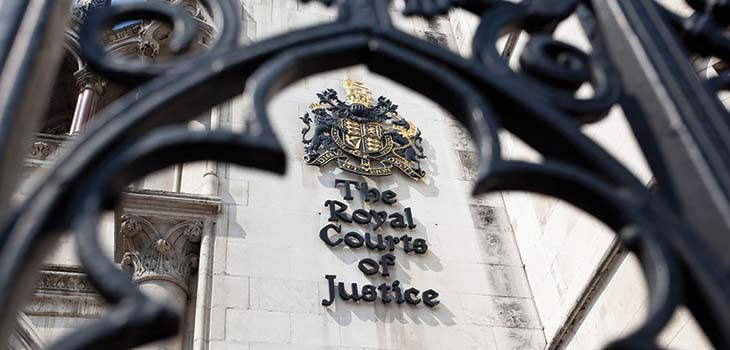
I know it is only the end of March but I doubt we will see a more exquisite judgment in 2022 than that of Lord Justice Birss in Philipp v Barclays Bank [2022] EWCA Civ 318, [2022] All ER (D) 48 (Mar). The claimant, a music teacher with a retired husband, was the victim of a massive fraud which saw her transfer £400,000 and then another £300,000 to a villain in the United Arab Emirates. That money represented their life savings.
She sued her bank for breach of an alleged duty to execute her instructions with reasonable care and skill. The transfers were of enormous sums and were unprecedented in the history of the account holder.
Standing up for the underdog
At first instance Philipp’s action was struck out. Birss LJ at para 71 of the judgment in a couple of sentences identified cogent reasons as to why a duty might well have been breached. The clarity with which he set out the underlying law was breathtaking. His judgment would be a splendid instrument to support an application by him to join the Supreme Court.
While all are equal before the law there are moments when judges cannot resist siding with the underdog. As recounted in the excellent Daily Telegraph Fifth Book of Obituaries, James Comyn QC opened a case before Lord Denning saying ‘I appear for a poor widow of 87 who has been ejected from her little flat’. Denning said: ‘Come now, we are a court of law, not a court of sympathy.’ A moment later he asked, ‘What age did you say this poor old widow was?’
In the opening of his judgment in Ferguson v British Gas [2009] EWCA Civ 46, [2009] 3 All ER 304 Jacob LJ declared, ‘It is one of the glories of this country that every now and then one of its citizens is prepared to take a stand against the big battalions of government or industry. Such a person is Lisa Ferguson, the claimant in this case’. The lovely Sedley LJ joined in, calling the conduct of the company ‘deplorable’.
Solicitor’s lien
Ten months on from just a one-day hearing, the Supreme Court has delivered judgment in Bott & Co v Ryanair [2022] UKSC 8, [2022] All ER (D) 54 (Mar). The claimant is a law firm that invested wisely but heavily in technology which enabled it to handle flight delay compensation claims. It took a cut from compensation recovered. In 2016 Ryanair began to send payments direct to the passenger which frustrated the recovery of costs. Quite a few clients hung onto the recovery despite having agreed that Bott & Co would have first charge on incoming funds.
The High Court and Court of Appeal refused to recognise a lien, the latter sniffily stating that no legal services were being provided at all. By a bare majority of 3-2 the Supreme Court found for the solicitor. Lord Briggs, a fine man fond of garden railways in his spare time, delivered a judgment which demonstrated that he at least lives in the real world. Consumers with claims, albeit of modest value, need advice. No-one coerced them to use a solicitor. It was a simple point about access to justice.
Of nine Judges who heard this litigation only three found for the claimant. The Supreme Court, which supposedly strives to deliver a solitary judgment when it can, generated three from the majority. The two dissentients delivered a joint judgment. What a mess.
Belsner hearing abandoned
The false start and subsequent abandonment of the Court of Appeal hearing in Belsner v Cam was unlike anything I have ever witnessed. Had I not been present for every minute of the hearing I would have refused to believe what happened. The appeal concerned an issue of ever-increasing importance. What exactly is the relationship between solicitor and client at the point of agreeing fees? This in turn raises arguments about how much one can deduct from damages recovered. With the advent of a drastic increase in fixed costs it is inevitable that claimants will be asked to make a hefty contribution if the claim is to be pursued. Mark Carlisle of checkmylegalfees.com (a memorable moniker) helpfully told me that he has 900 cases stayed pending resolution of Belsner.
The hearing before the Master of the Rolls, Flaux LJ and Arnold LJ commenced in the afternoon of 22 February. Stars of the Costs Bar appeared including David Holland QC on behalf of the Law Society, which had been granted permission to intervene. Ben Williams QC, appearing for the appellant solicitor, was given a torrid time by Sir Geoffrey Vos, someone whom I hold in the highest regard. The latter asserted that non- contentious business was contentious. He opined that the proportionality test applies on the indemnity basis, which was slightly surprising because the Rules say not. It did not stop there. Flaux LJ pointed out correctly that costs in road traffic portal cases (which settle at stage 1 or 2 without being issued) are found in the Costs Rules so might it be that unissued cases are ‘proceedings’ after all? It was one of those days.
At midnight counsel delivered 129 pages of authorities to the judges in an attempt to address the various leftfield points conjured up by them. We were back in court the next morning. A conciliatory Master of the Rolls said that through no fault of the parties issues of profound importance had emerged. After taking soundings from the three leaders it was agreed that the hearing be abandoned! Skeleton arguments were to be shredded. The parties were to agree a new list of issues. The appeal is to be heard next term with a two-day estimate and a day three in reserve, just in case.
I will let you know how it goes.
Professor Dominic Regan of City Law School, director of training at Frenkel Topping Group & NLJ columnist (@krug79).










